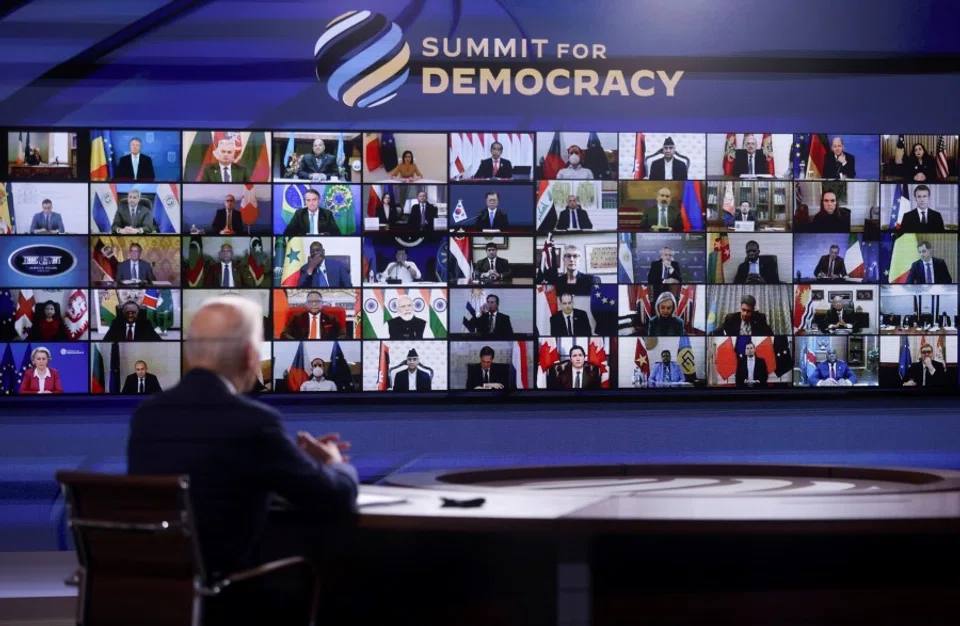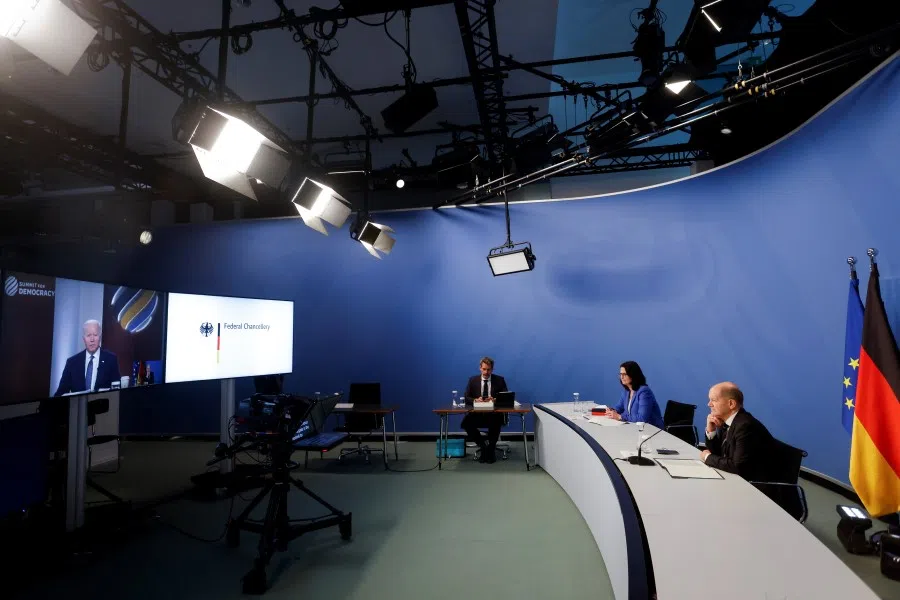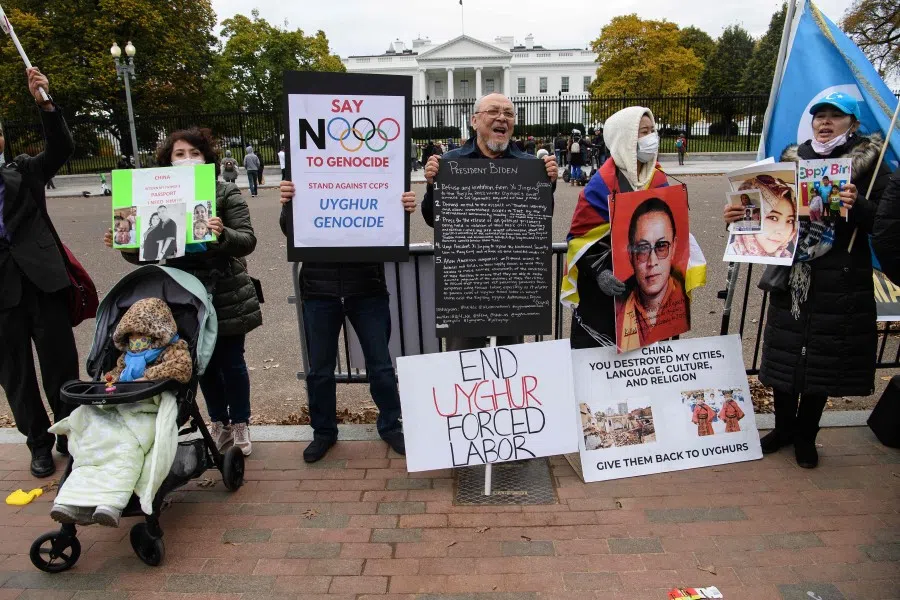Japanese academic: Summit for Democracy showed weakness of Biden's diplomacy
Japanese academic Sahashi Ryo notes that the US-led Summit for Democracy met with a lukewarm response in Asia because it smacked of the US trying to impose its ideas on other nations. Not only that, given the Biden administration's poor listening skills, their talk of valuing partnerships with allied countries rings hollow.

The first Summit for Democracy organised by the Biden administration was held with considerable fanfare. The event was not, however, warmly welcomed in Asia. This cannot be attributed to an acceptance of the Chinese government's claim that China is also practicing democracy. Nor can it be attributed to a desire to ignore the fact that democracy in Asia and across the world, while still in its infancy, is already beginning to show signs of backsliding. The reason the Summit for Democracy was rejected by Asia is quite simply that it appeared to be an attempt by the US to place itself at the centre and impose its ideas on other nations. This was an overly naive diplomatic tactic.
...the US was an ever-present shadow throughout the summit, with a senior official of the Biden administration seated in front of the stars and stripes delivering the keynote address and moderating the event.
Asserting control
The summit was held online and a recording is available for viewing. It followed the usual webinar format of one-sided presentations we have all become accustomed to over the past two years. Granted, some important points were made. The presentations offered many insights that could guide thinking about the state of the world in which the development of digital technologies and corruption undermines democracy and where human rights are threatened when democracy is weakened. While the summit may have been somewhat lacklustre in nature, it nonetheless prepared the ground for face-to-face meetings at a deeper level in the future to enable the discussion to move forward around principles of civil liberty and democracy acceptable to many cultures of the world. However, the US was an ever-present shadow throughout the summit, with a senior official of the Biden administration seated in front of the stars and stripes delivering the keynote address and moderating the event. It is difficult not to feel the arrogance behind this clear message that the US is the one in control of the discussion.

The summit had the vibe of a large stage set - just the way the US Democrats like it - and this will likely continue during the Biden administration.
How did the list of invitees come to take the form that it did? Officially announcing a list of nations in the first place is akin to slighting the many individuals and groups who are beginning to take action toward democracy. How is it that the US government gets to decide which governments to invite and which not, and that the US Department of State announces the list of invitees? The US does not appear to have consulted numerous political indices showing the status of democracy, resulting in inconsistencies in respect of many nations left off the list of invitees.
That an invitation was extended to Taiwan is unsurprising. An outstanding global democracy has taken root on the islands of Taiwan and is trying to overcome the challenges it faces. However, it could surely have been foreseen that excessive media coverage surrounding the invitation of Taiwan would detract attention from what the summit set out to discuss.

... capital flow will increasingly be used as a means of applying regulations against China under the guise of human rights diplomacy.
Lacking inclusiveness, creating divisions
The summit had the vibe of a large stage set - just the way the US Democrats like it - and this will likely continue during the Biden administration. This format makes it difficult for the summit to have a persuasive influence on the international community and actors working for democracy. While creating a safe world is important for democracy, it is difficult to appreciate the methods used to achieve this, which lack the inclusiveness democracy requires and create divisions.
Be that as it may, the US will not waver in its commitment to build order in the face of China's rise, not only through the logic of its realistic power, but also through values such as democracy and human rights. Many of the regulations issued by the US government are being used as a means to this end. The ban on investment in the new IPO of SenseTime Group and the new slate of sanctioned persons under the Magnitsky Act announced to coincide with the summit suggest that capital flow will increasingly be used as a means of applying regulations against China under the guise of human rights diplomacy. The launch of the initiative on human rights and export control together with Australia and other nations is symbolic of the current era in which the prevailing US-centric multilateralism frequently employs a "coalition of the willing" framework.
... the US lacks the virtue of listening to the opinions of those around it before doing what needs to be done, even if it means backing down at times.

In addition, the White House's Alliance for the Future of the Internet, a new scheme that was not announced in time for the summit due to a lack of consensus of views in the US, is reminiscent of the Clean Network project of the Trump administration. The scheme seems to be better understood however in the sense that the US government will select members it trusts.
The Biden administration believes that the international order, which was almost destroyed by the Trump administration, should be rebuilt, and that it should evolve into one that is capable of standing up to China. The US's confidence that it alone is able to design such an international order, and the ambition it has to achieve it comes across loud and clear. However, judging by the Summit for Democracy, it would appear that the US lacks the virtue of listening to the opinions of those around it before doing what needs to be done, even if it means backing down at times. Thus, its talk of valuing partnerships with allied countries rings hollow.
Related: War of words: China and the US tussle for speaking rights on democracy | Will the Summit for Democracy unite or divide the world? | Invite list for Summit for Democracy shows true calculations in American foreign policy | A low-confidence US, an unconvincing democracy summit | Why democracy is failing and why some authoritarian regimes might just work | Can there be a China-style democracy?


![[Big read] When the Arctic opens, what happens to Singapore?](https://cassette.sphdigital.com.sg/image/thinkchina/da65edebca34645c711c55e83e9877109b3c53847ebb1305573974651df1d13a)


